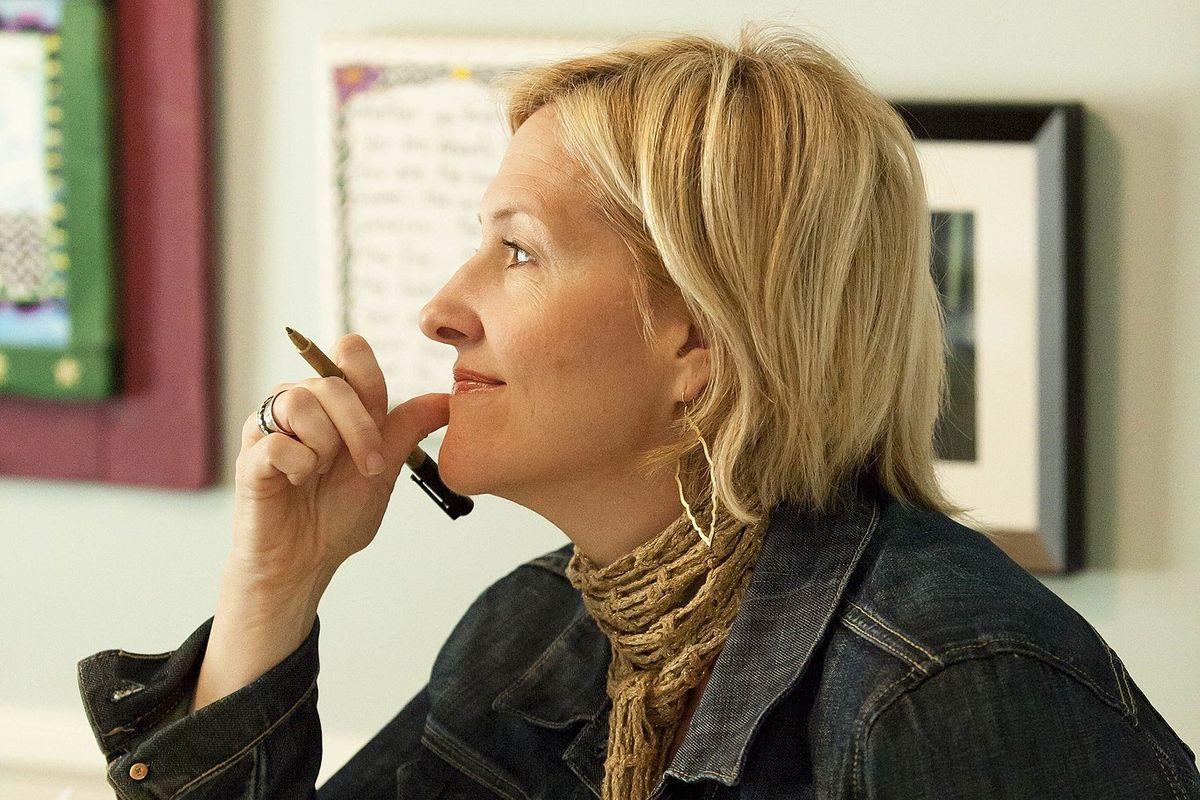A famous therapist says anxiety and excitement feel the same. People amusingly disagree.
Where'd she buy that anxiety? Is that on Amazon?

Brené Brown's view on anxiety has people amusingly disagreeing
Imagine that you're about to head to the airport for a tropical vacation when suddenly you're so excited that you feel like you're going to die. Your heart starts feeling like it's rolling around in your chest, your hands are sweaty and your vision is going blurry all while you're trying to drive to the airport. That doesn't sound very exciting does it?
But Brené Brown, a famous therapist, is quoted saying, "anxiety and excitement feel the same, but how we interpret and label them can determine how we experience them." The quote is from her book, "Atlas of the Heart," where Brown is exploring 87 different emotions and experiences that comprise the human experience.
The quote, meant to be inspirational was shared to Upworthy's social media page and people have some distinctions between anxiety and excitement that they'd like Brown to know about. Their grievances were hilarious and valid.
"Cool so I’ll just tell my body I’m having an excitement attack instead of panic attack next time. Cuz the label will make it feel better," one commenter writes.
Is this sort of anxiety on sale somewhere? Maybe on Amazon perhaps? The level of positive thinking and self talk it would take to convince yourself that your anxiety is simply excitement seems like an Olympic level sport. If it were as simple as the short quote would have you believe then it would probably save people on unnecessary trips to the hospital.
"I’d like to experiment her kind of anxiety if it’s exciting mine lands me the hospital crying in distress. Wouldn’t say that’s exciting," someone else jokes.
"She's off on that one. Anxiety does NOT in any way feel like excitement. Excitement feels like excitement!!!!!," another proclaimed.
"Ummm excitement definitely doesn't make me feel like I'm going to pass out," one person wrote.

woman in orange long sleeve shirt sitting on floor
Photo by Joice Kelly on UnsplashWell, Brené the jury is definitely not out on this one. People cannot be convinced that anxiety and excitement are the same and while Brown's quote is often shared in this short form, it's important to remember that it's from an entire chapter from an entire book. The chances are very high that if quoted fully in context, it would make much more sense.
- A helpful chart to explain the difference between support and 'toxic positivity' ›
- Empathy expert Brené Brown shares hilarious story with poignant message about blaming ›
- Brené Brown shares her heartfelt thoughts on how long grief should last ›
- Brain hack can help you resist any temptation - Upworthy ›



 Millennial mom struggles to organize her son's room.Image via Canva/fotostorm
Millennial mom struggles to organize her son's room.Image via Canva/fotostorm Boomer grandparents have a video call with grandkids.Image via Canva/Tima Miroshnichenko
Boomer grandparents have a video call with grandkids.Image via Canva/Tima Miroshnichenko


 A couple cooking in the kitchen with a cat sitting on the table beside chopped ingredients.
A couple cooking in the kitchen with a cat sitting on the table beside chopped ingredients.